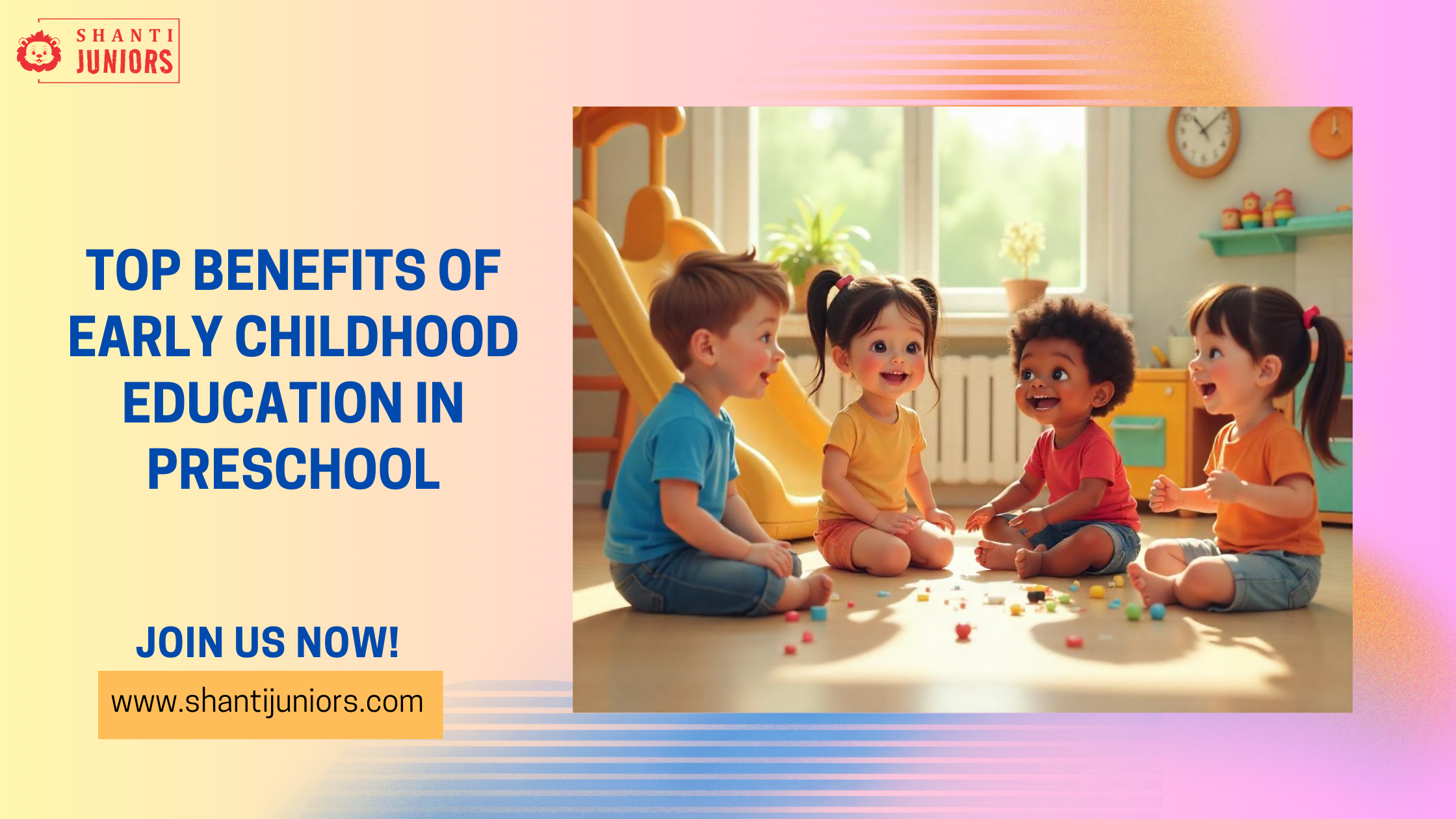

Preschool education plays a significant role in shaping a child’s personality, learning habits, and overall development. In this article we will explore the top benefits of early childhood education in preschool.
Early childhood education is often regarded as the foundation upon which all future learning is built. It’s during these formative years that children’s brains are like sponges, absorbing everything around them. Preschool education plays a significant role in shaping a child’s personality, learning habits, and overall development. In this article we will explore the top benefits of early childhood education in preschool.
The first few years of a child’s life are critical for development, both mentally and emotionally. Early childhood education fosters cognitive, social, and physical development. It helps lay the groundwork for future academic success and helps children develop into well-rounded individuals. Preschool education is more than just learning ABCs and 123s; it’s about cultivating skills that will last a lifetime.
Early childhood education refers to the period from birth to the age of eight, with a focus on preschool-aged children. During this time, children engage in experiences that encourage learning and exploration. It’s a time when children learn through play, social interaction, and guided instruction, all of which are essential for their growth.
Preschool helps children enhance their cognitive abilities through structured activities that promote problem-solving, critical thinking, and creativity. Activities like puzzles, storytelling, and interactive games stimulate brain development and foster curiosity.
Being in a preschool environment teaches children how to interact with their peers, teachers, and other adults. They learn essential social skills such as sharing, cooperation, and empathy, which are vital as they grow. Emotional regulation is another key area of focus, as children learn to express their feelings appropriately and manage their emotions.
One of the main advantages of early childhood education is the development of language and communication skills. Through songs, stories, and conversations with teachers and classmates, children expand their vocabulary and learn to articulate their thoughts clearly.
Shanti Juniors adopts a child-centered approach, which means the curriculum is tailored to meet the developmental needs of each child. The focus is not just on academic learning but on holistic development, ensuring that children grow emotionally, socially, and cognitively.
At Shanti Juniors, the emphasis is on the overall development of the child. The school integrates physical activities, creative arts, and moral values into the curriculum, ensuring a well-rounded education. By focusing on these areas, Shanti Juniors prepares children not just for school but for life.
Shanti Juniors uses a play-based learning approach that allows children to explore the world around them in a structured yet fun environment. Play is a powerful tool for learning, and through it, children develop problem-solving skills, improve social interactions, and enhance their creativity.
Safety is a top priority at Shanti Juniors. The school provides a secure and nurturing environment where children feel comfortable exploring and learning. With proper safety protocols in place, parents can rest easy knowing their children are in good hands.
Shanti Juniors prides itself on having qualified and passionate educators who understand the unique needs of preschool-aged children. Teachers are not just instructors but mentors who guide children through their early years of learning.
The materials used at Shanti Juniors are carefully selected to be age-appropriate and engaging. From books to toys, everything is designed to stimulate curiosity and foster learning in a way that is fun and meaningful for children.
Shanti Juniors focuses on developing critical thinking skills from a young age. Children are encouraged to ask questions, explore different solutions, and think outside the box. This foundation sets them up for success in their future education.
One of the key goals of early childhood education is to foster independence. At Shanti Juniors, children are taught to take responsibility for simple tasks, boosting their self-confidence and preparing them for the structure of formal education.
Children at Shanti Juniors are encouraged to express themselves and take pride in their accomplishments. The supportive environment helps children build self-esteem, which is crucial for their personal and academic success in the future.
Parents play a significant role in their child’s education, and at Shanti Juniors, there is a strong emphasis on collaboration between parents and teachers. Regular communication ensures that parents are actively involved in their child's progress.
The learning doesn’t stop at preschool. A supportive home environment is just as important for a child’s growth. Parents are encouraged to reinforce the skills learned at school and create a space at home where learning is fun and continuous.
Early childhood education lays a strong foundation for lifelong learning. Shanti Juniors Preschool offers a comprehensive approach to child development, focusing on cognitive, social, and emotional growth. With a nurturing environment, expert educators, and a play-based curriculum, Shanti Juniors ensures children are well-prepared for future educational success. The collaboration between parents and teachers further enhances the learning experience, making Shanti Juniors a top choice for early childhood education.